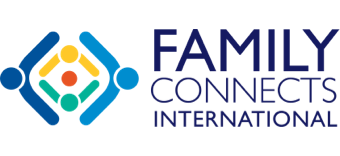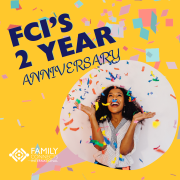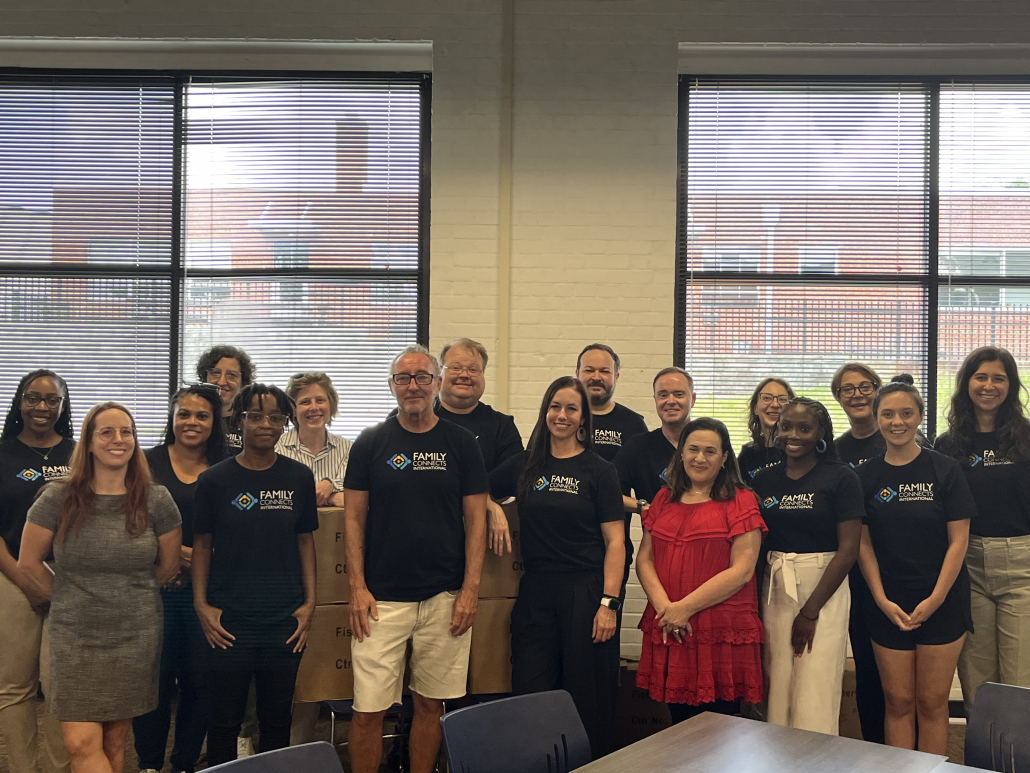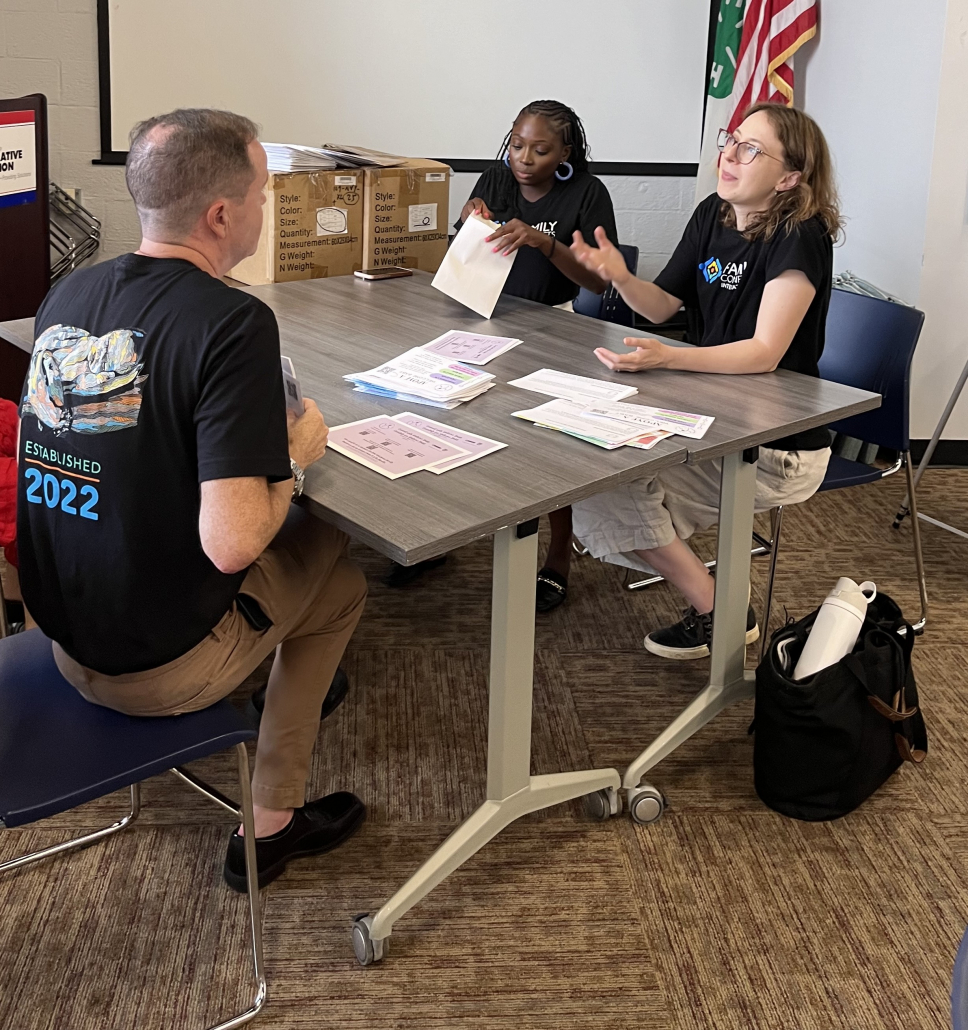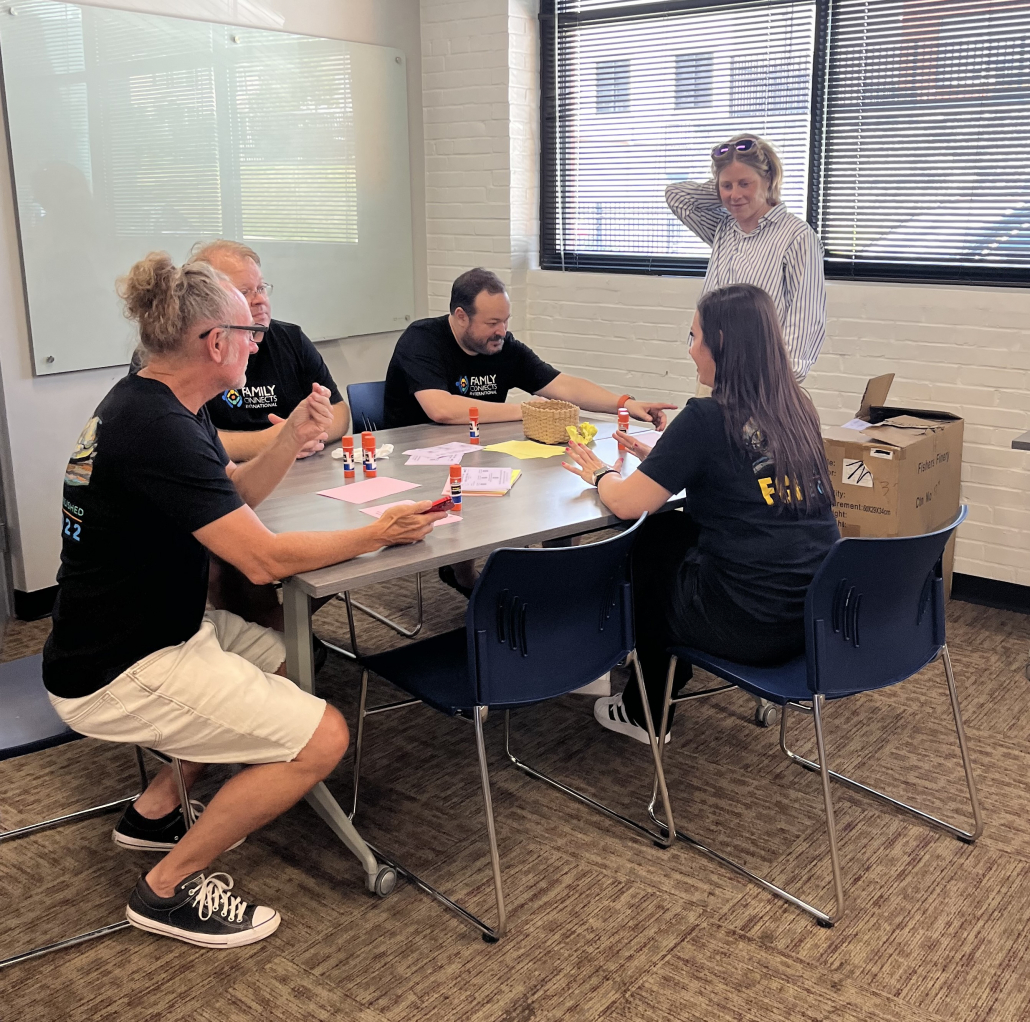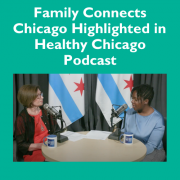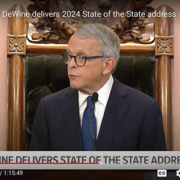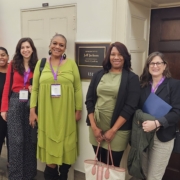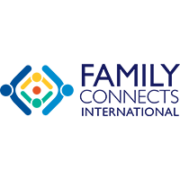
Nancy Segall (Clinical Director at Beyond the Baby Blues) and
Monica Mitchell (CDPH Public Health Administrator)
Monica Mitchell and Nancy Segall discuss the importance of maternal mental health and available resources to support mothers at a crucial time.
Listen:
Watch:
FCI, works with community partners across the USA, such as Family Connects Chicago, to ensure ALL newborns and families receive equitable and quality health care, support and resources.
The perinatal period is often described as a time of joy and hopeful expectation for mothers and families of newborns. The mounting pressure for mothers to display excitement and happiness during this time is enormous for some. It is no surprise that mothers of newborns often feel alone and experience increased sadness and low mood. Mental health challenges are very common and can impact any mother or expecting mother, regardless of background, during the perinatal period.
During Mental Health Awareness Month, Family Connects International highlights the importance of maternal mental health and well-being. Mental health disorders in mothers, such as mental health conditions and substance use disorders are major factors contributing to maternal deaths. In 2022, the CDC reported that over 80% of perinatal deaths were preventable. 23% of perinatal deaths are linked to mental health conditions including feelings of despair, restlessness, or substance abuse, which are the most significant problems associated with pregnancy, childbirth, and the postnatal period, affecting one-fifth of women. According to the CDC, one in eight women experience postnatal depression.
Though mental health conditions related to the perinatal period are not completely preventable, they can be managed, making recovery possible when symptoms of depression are detected, and mothers are provided with the resources needed to address their concerns.

Maternal Mental Health Warning Signs
During a Family Connects nurse home visit, registered nurses examine infants and assess mothers for needs and concerns. When a mother shares that she has been experiencing symptoms of depression, anxiety, or any mental health condition, Family Connects’ registered nurses address the need by connecting her to local resources that will support and help her on her path to recovery.
Some risk factors for maternal mental health conditions are:
- History of mental health issues
- Family history of depression and anxiety, or any other health conditions
- Chronic health issues
- Relationship challenges during the perinatal time
During the postpartum period, mental health conditions may interfere with a mother’s ability to bond with her newborn, which is critical during this time. Women with postpartum depression may experience long-term sadness, lack of pleasure or disinterest in activities they usually enjoy, negative thoughts about their newborns or themselves, suicidal ideations, or other signs related to mental health challenges. It is important to understand the signs of perinatal mental health conditions and to connect mothers to resources to address their needs to make a full recovery.
Our mission is to ensure every family of a newborn receives equitable care within three weeks of birth. The Family Connects Universal Home Visiting Model addresses common challenges and concerns, including physical and mental health conditions. It also connects mothers to local support systems and resources to meet their needs. During a Family Connects nurse home visit, personalized plans and goals may be created in collaboration with the mother for childcare, health, and returning to work, if the mother chooses.
How Family Connects International Provides Care and Resources to Support Maternal Mental Health
The Family Connects Model integrates medical assistance with mental health resources. Family Connects International equips our community partners with training, resources, and support to connect families to local resources and provide newborns and their families with quality care. Registered nurses meet mothers and newborns at their homes, or at a location they are comfortable with, free of charge. Meeting mothers where they are most comfortable allows registered nurses and mothers to have conversations they might not normally have in public medical facilities.
The resources Family Connects nurses offer align with the mother’s mental health and physical needs discussed during the nurse home visit. Our registered nurses listen to mothers and work to provide them with needed tools and resources based on the needs identified. By the end of the nurse home visit, mothers are empowered and equipped to get the care they deserve. Studies have shown that the Family Connects early intervention program reduces the risk of mental health conditions. In a 2014 study, evidence indicated that the Family Connects model can reduce the likelihood of postpartum depression or anxiety by 30%.
Family Connects’ registered nurses are trained and equipped to address the whole person’s needs and the needs of their newborns and families. Our nurse home visits are completely confidential. There are countless accounts of new parents and their families who receive a nurse home visit from a Family Connects registered nurse highlighting the exceptional level of care delivered by our community partners and healthcare professionals. The testimonials received underscore the quality services our dedicated teams of nurses provide, ensuring the well-being of families and infants in communities nationwide. Our commitment to excellence shines through in the positive experiences and stories of those who have benefited from our nurse home visits.
Our mission revolves around ensuring that all families receive the necessary care and support during this crucial time. Family Connects Nurses embody our mission every day. To learn more about our nurse home-visiting model and how it improves the lives of mothers and newborns visit our website at FamilyConnects.org. Interested in becoming a community partner of FCI? Visit https://familyconnects.org/join-us/launch-a-family-connects-partnership/.
Dr. Simbo Ige, Chicago Department of Public Health Commissioner, talked to ABC 7 about Black Maternal and the availability of Family Connects to new parents in Chicago. Chicago is increasing access to over 16,000 women who will receive a free in home visit from a nurse!
You can find the full story HERE at ABC 7
The video above has been set to play right before Governor DeWine starts speaking about Family Connects at the 39 minute mark.
“I’m also pleased today to announce that we will be launching a new pilot program in 11 Ohio counties that we’re calling Family Connects. Every new mom will be eligible in these 11 counties to receive a visit from a nurse about 3 weeks after delivering her baby. These visiting nurses can guide families to clinical or community supports, recognize when a mom and a baby may need additional help as a result of exhaustion or trouble with breastfeeding, and remind or teach new moms about how a baby can sleep safely. Similar programs that we’ve looked at have shown a track record of reducing infant mortality. In places where these programs have been implemented rates of Child Protective Services investigations have decreased by 44% and mothers have shown a 30% drop in postpartum depression and a 50% reduction in emergency room visits. In our next budget that I’ll present to you next year, I’ll be asking you for additional support to take that Family Connects program statewide.”
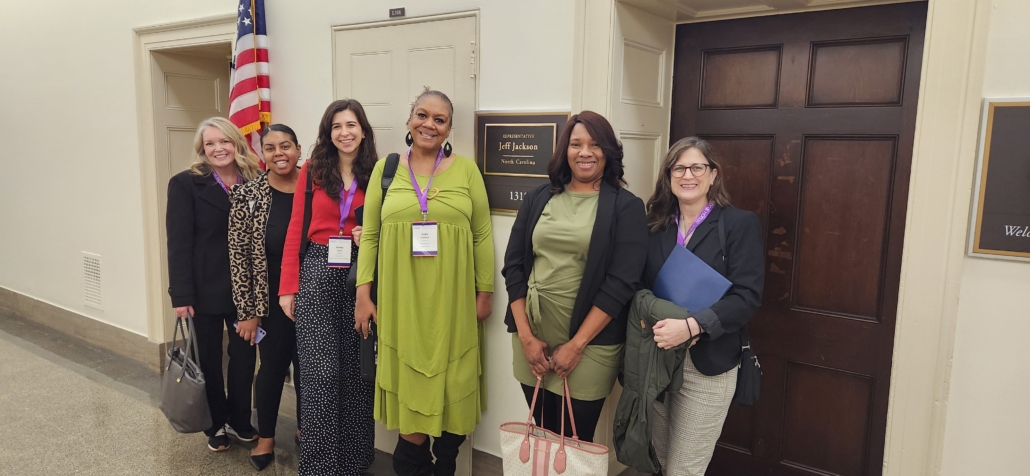
By: Melea Rose-Waters, MSW, Senior Policy Director, Family Connects International
Participants who attended the National Home Visiting Summit had a busy and productive day on Capitol Hill! From January 31 to February 2, 2024, our Nation’s Capital was filled with advocates for children and families as they attended the National Home Visiting Summit. During this part-advocacy and part-educational event, participants were given the opportunity to schedule meetings with their congressional delegation, also known as Hill visits. These meetings were organized by a state lead and guided by preparation provided by the Start Early Community of Practice on Advocacy and Policy and a strategy session the morning of the visits on January 31st.
Family Connects International’s senior policy director, Melea Rose-Waters, organized meetings with members of Congress across different states and participated in visits with a number of advocates from home visiting models, early literacy groups, community-based organizations, and academia. We walked the halls of Congress and sat at tables together with members and staffers with a common goal: raising awareness for the need to support children and families.
Moving Upstream
A holistic approach to child and family support begins upstream, and the United States is currently facing a maternal mortality public health crisis. The U.S. has the highest pregnancy-related death rate among developed nations and that rate rose a staggering 40% in 2021 compared to the previous year. The maternal mortality rate for Black women is nearly three times higher than the rate for white, non-Hispanic women. These stats beg the question: how is this happening in a country with one of the most advanced health care systems in the world?
There isn’t one simple solution to prevent potential health complications postpartum, but there is certainly more we could be doing as a country today to demonstrate that the health and well-being of moms and babies is a priority.
Family Connects: A Universal Solution to a Preventable Crisis
Family Connects is an evidence-based program where a nurse visits families with newborns in the first few weeks postpartum. In the select communities where the service is available, it is offered universally to everyone and at no cost to the family. A visit is scheduled with the family before leaving the hospital and three weeks later, the nurse comes to the home to visit mom and baby. The visit is an extension of the medical care provided by their OBGYN and can bridge a gap between the family and an entire community system of care that is available – from childcare resources to breastfeeding support.
Medical assessments aren’t the only areas that the nurses cover during visits. They carry with them a wealth of knowledge about the best care for moms and newborns, and they help connect families to the resources that are available to them in their communities. The program has been shown to reduce postpartum anxiety, increase the likelihood that mom attends the recommended six-week postpartum health check, and improve overall health and well-being for both mom and baby.
In the US, infants typically visit their pediatricians several times in the first few weeks of life, yet moms are typically seen by their providers about six weeks postpartum, leaving a six-week span of zero care. For some moms, these visits are a matter of life and death.
A Call to Action for Policymakers and Providers
The Washington Post featured an op-ed on August 18th, 2023 titled “Want to fix America’s maternal health crisis? Here’s where to start” that highlighted data-driven policy recommendations to provide the best maternity care. These recommendations underscore themes that maternal health experts have been saying for decades: what we’re doing isn’t working.
Providers need to pay more attention to the health and well-being of moms during the postpartum period, prioritize equity to address maternal mortality risks that are disproportionately impacting people of color, and look to what has worked well in other countries to improve maternal health outcomes. A call to action for both policymakers and the medical community, with a roadmap of strategies that can change outcomes and support families during a vulnerable – and sometimes scary – life transition into parenting a newborn.
A Gold Standard of Postpartum Care
Currently, two states are bringing Family Connects statewide, and there is a scattering of communities across the country that have also seen the value in nurse visits for new moms. A national crisis like the maternal mortality rate needs innovative, universal solutions. What we’re doing isn’t enough and it isn’t working. Moms and families deserve more. Imagine what is possible with a gold standard of postpartum care that includes a holistic approach that starts prenatally and continues well into the fourth trimester – the critical time postpartum that is most dangerous for new moms, with the highest risk of maternal death occurring during the first 42 days postpartum. Family Connects nurses are saving lives.
Want to know how you can meet with your policymakers? Stay tuned for our next blog post for Community Partners on how to organize and execute effective meetings with policymakers.
Learn more about the policy priorities for Family Connects International, the home office of Family Connects located in Durham, NC, or connect directly with us at melea@familyconnects.org. Want to learn more about the Home Visiting Summit? Check out this blog post from Start Early on Four Takeaways from the National Home Visiting Summit.
Universal nurse home visiting for newborns and their families is our priority at Family Connects International. We have made it our mission to strengthen connections for families with newborns and link them directly to health and community care resources. Learn more about Family Connects International today!
In our last blog featuring FCI Voices, Family Connects Pierce County shared their journey to certification through Family Connects International. But what is the role of community partners and why is the work they do imperative to ensuring equitable care for every family and newborn? In this blog, we will learn from FCI’s Acting CEO Jenny Jensen, MSN, MPH, RN, just how important community partners and nurses are to providing postnatal care, including detecting birth defects and connecting all families to needed resources.
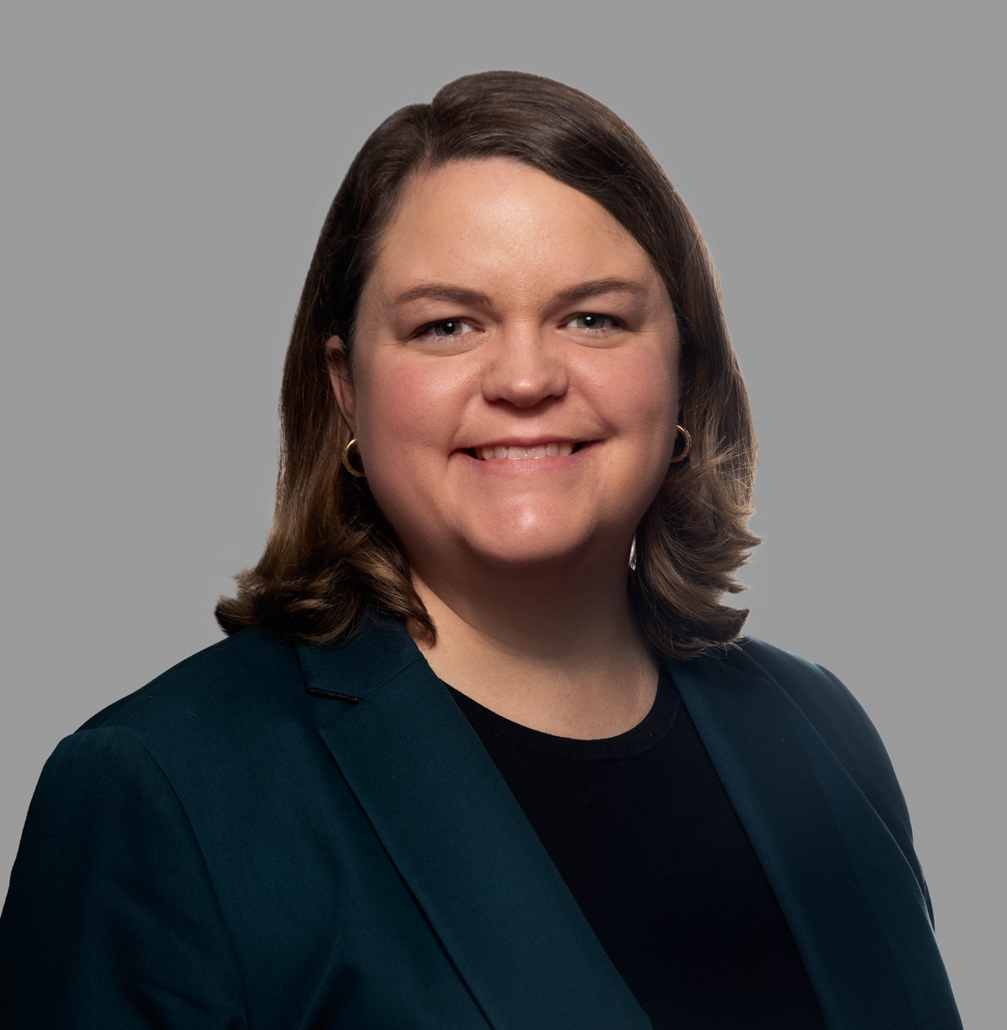
What role do our community partners and nurses play in detecting birth defects and providing resources for healthy families?
When we do a home visit, we get to spend 1.5-2 hours with families. We are fortunate to not be rushed like you often feel in a clinic environment, so there’s plenty of time for families to share their concerns and for us to do a very thorough exam. For example, I once detected an unusual heart sound during a Family Connects home visit and notified the baby’s pediatrician, who ended up referring the baby to a cardiologist. Family Connects nurses are also experts on community resources and benefits, like care coordinators for babies with complex medical needs and early intervention services for those with developmental delays. If families are interested, we will help them connect with these services.
How does FCI’s universal home visiting model contribute to equitable outcomes for every newborn?
Family Connects is available for every family. We know that everyone needs support when they bring home a baby, whether it’s help with physical recovery, breastfeeding, dealing with postpartum depression, or accessing practical needs like food and diapers. Family Connects support is tailored to the needs, priorities, and preferences of each family.
What is your vision for FCI and its community partners? Where do you hope to see FCI going to expand its universal care approach?
I want FCI to continue to develop innovative ways to provide high-quality support for our community partners. That is what helps to enable our partners to provide innovative and high-quality support for families and communities. I am incredibly proud of our organization and the ways that we are continually improving our matrixed support for partners. In just the past year we have enhanced our customized database, launched webinars and annual awards programs, developed a policy dashboard, and instituted regular nursing office hours. As we innovate, I am committed to being responsive to the requests and priorities of our community partners.
I think the next phase of universal care is to not only offer Family Connects to every family in a community but also offer Family Connects to every community! We are operating in a few dozen counties and cities across 19 states, but most Americans do not yet have access to Family Connects. We need policymakers, health systems, and payers to commit to a new system of care in the fourth trimester that provides access to evidence-based nurse home visits for all families.
Thank you, Jenny! Interested in launching a Family Connects Partnership? Visit FamilyConnects.org today to learn more!
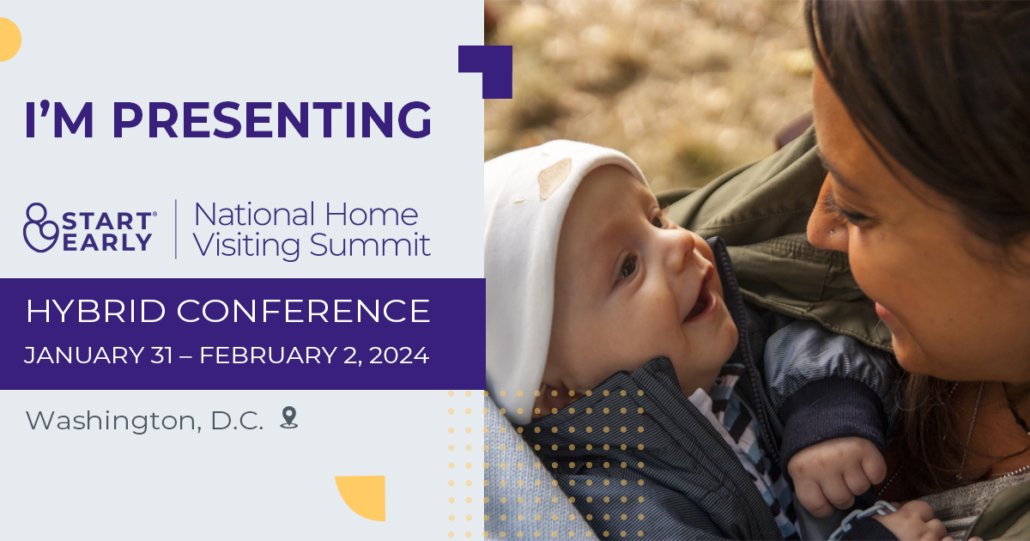
This Friday, February 2nd, Jennifer Jensen will be presenting alongside Lori Sprecher and Pilar Olivo (Family Connects Frederick) at the 2024 National Home Visiting Summit! The 60-minute workshop session, “Redesigning Postpartum Health Care to Include Universal Nurse Home Visits.” Register today to attend!
According to Gallup, nurses remain the most trusted professionals for the 22nd consecutive year. In Gallup’s 2023 Honesty and Ethics poll, 78% of adults in the United States report that they believe nurses have high ethical standards and are honest. At Family Connects International we are committed to ensuring that every newborn receives equitable care. Our evidenced-based, universal, nurse home-visiting model offers support to families with newborns. Family Connects nurses visit the home approximately three weeks after birth and connect families with the community resources they need. Learn more about our universal model through our webinar series.
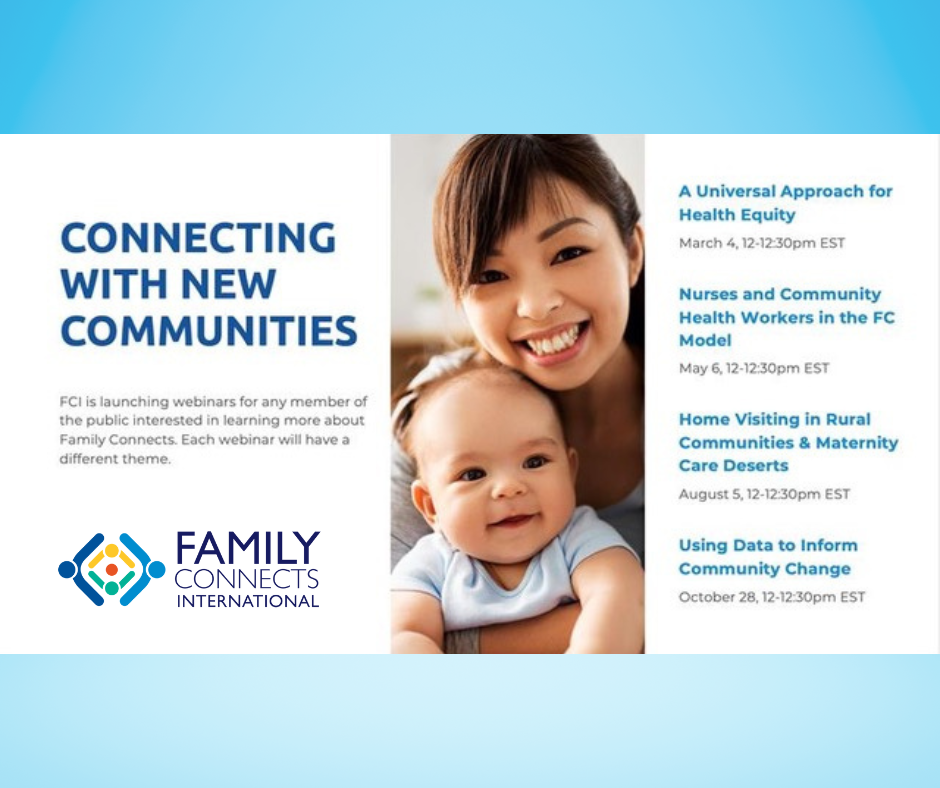
Universal Home Visiting for newborns and their families is our priority at Family Connects International. We have made it our mission to strengthen connections for families with newborns and link them directly to health and community care resources. Learn more about Family Connects International today!
Last November, Washington-Pierce County became a certified Family Connects Community Partner. In this post for our blog series “FCI Voices for Universal Newborn Care”, we will learn from Pierce County about the importance of certification in their own words.
A Message from Pierce County, WA
When we launched Family Connects Pierce County in March 2021, we really had no idea if the program would take or what impact we could truly have on families in our community. What we did know, is that we were confident in our local leaders’ decision to choose a reputable national program able to respond to Pierce County’s enduring child welfare crisis, and confident that our implementing agencies were capable and equipped to deliver the program effectively. Achieving certification means so much to us in Pierce County. As the only Family Connects site operating in Washington State, certification adds credibility to our program. When families feel like they can trust a program and trust our nurses, they will seek the postpartum care they need and deserve, and we can provide the most comprehensive wraparound support to them.
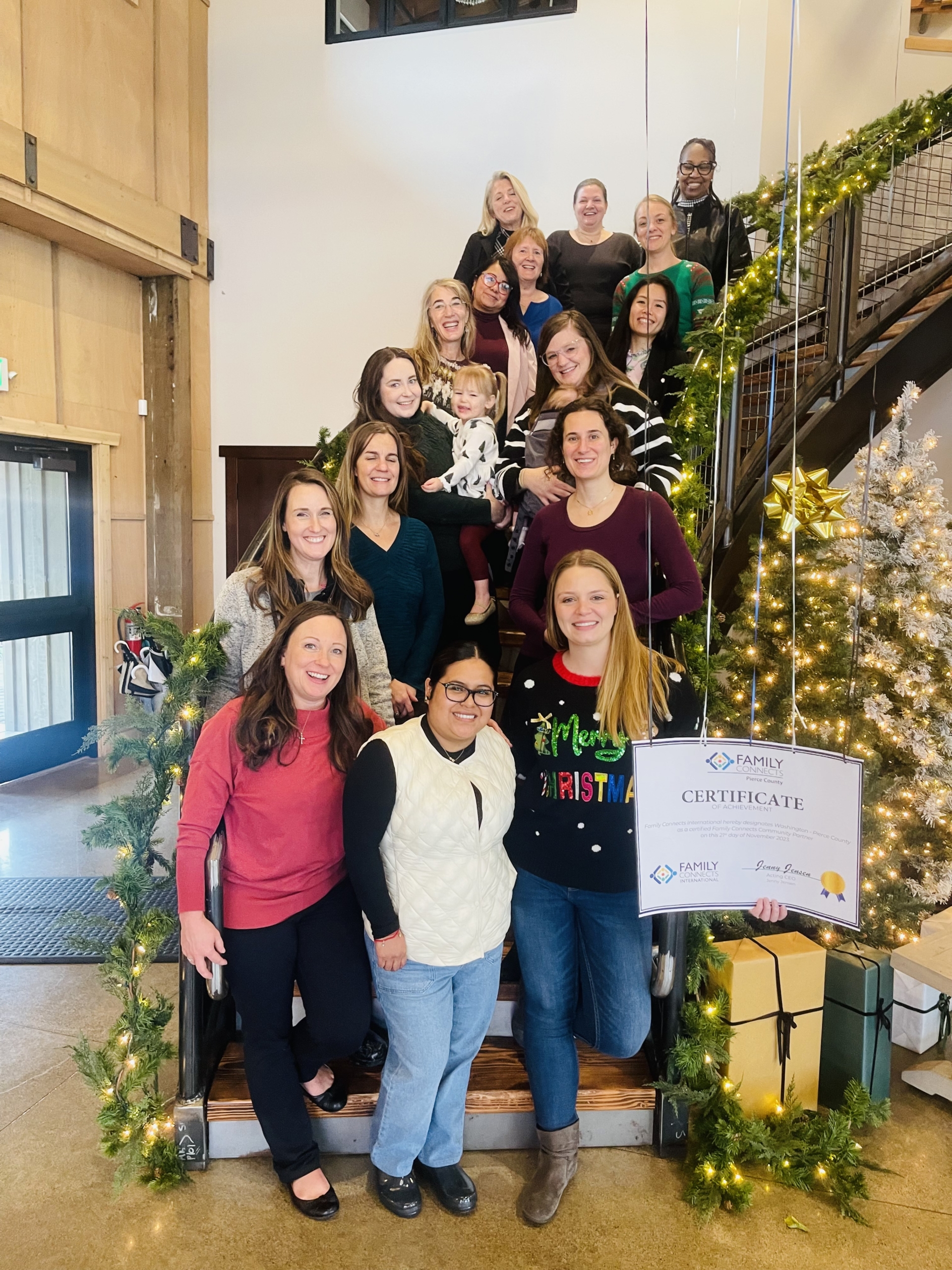
Our road to certification felt very much like a rollercoaster. As soon as we felt like things were moving along well, we would be humbled by a hiccup requiring a swift change in course to respond and redirect. Our implementation specialist was right there with us from the start, and we honestly could not have achieved as much as we did so early in implementation without her thoughtful feedback, knowledge of our unique community, attention to detail, and moving data. When FCI transitioned to a nonprofit and assigned a new implementation specialist, we felt equipped to pivot and continue to support our families with the best postpartum support knowing we built a strong foundation. We are grateful to FCI for their grace in answering our questions and supporting our team along the way.
I would encourage interested communities to first really center the community’s voice in deciding if this program is a right fit for them. Once you’ve achieved that decision, hop on the rollercoaster, and enjoy the ride. There is beauty in the journey, and for us, that beauty has been learning with and from other Family Connects sites, which has only bolstered our local Family Connects program. We have especially found beauty in the families we’ve served, who have trusted us wholeheartedly with a completely new way of thinking about postpartum and the fourth trimester. Without them, there would be no Family Connects Pierce County.
Thank you, Pierce County, for sharing your experience and for providing resources and home-visiting care throughout the year! Interested in launching a Family Connects Partnership? Visit FamilyConnects.org today to learn more!
